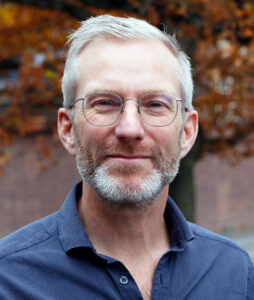The foundation of the Anthropocene Laboratory, the most recent addition to the Royal Swedish Academy of Sciences’ research programmes, is becoming established; a scientific committee has been formed to support its activities, and the first postdocs will soon arrive at their new workplaces.

In the summer of 2022, the Royal Swedish Academy of Sciences received funding from the Marianne and Marcus Wallenberg Foundation and the Marcus and Amalia Wallenberg Foundation for an Anthropocene Laboratory. Its focus will be research on sustainability issues relating to the Anthropocene, the geological epoch in which human influence is playing a decisive role for the Earth’s climate and conditions for life.

Its director is Professor Henrik Österblom, previously head of research at Stockholm Resilience Centre. Behind him, there is a scientific committee chaired by Carl Folke, director and professor at the Beijer Institute of Ecological Economics. The committee includes a number of influential researchers in the field (see footnote).
“The initial period has largely been about trying to find our place, to discover what we can contribute that no one else is doing. Lots of good things have already been done and we want to build upon these, but also to find our own interesting and relevant niche. This must involve robust and innovative research,” says Henrik Österblom.
He regards the Anthropocene Laboratory as a scholarly meeting place, one that will bring together different disciplines, the humanities and sciences, as well as the arts. In practice, the laboratory will conduct its own research in the area and will gather other stakeholders through activities such as workshops.
Hope for the future
Two postdocs were recruited during the spring and will soon be starting work. There are two main tracks: one is the intertwined biosphere, where the focus is on how humans and nature are linked, while the second, empirics of hope, includes research on how society can adapt and developments that bring hope for the future.
“Apparently people find this interesting, as we had an incredible number of highly qualified applicants. The approach seems to be inspiring, which is great,” says Henrik Österblom.
One hope is to be able to organise the first workshop in November, by which time a coordinator and two research assistants will also have started work at the Anthropocene Laboratory.
The ambition is for the laboratory to be a significant player, providing the Royal Swedish Academy of Sciences with greater societal influence on sustainability issues.
“I hope that, in a few years, we will have become established as a place for interesting interdisciplinary cooperation, somewhere that people gather to discuss major challenges. I also hope we will have published scholarly articles,” says Henrik Österblom.
Footnote: The scientific committee affiliated with the Anthropocene Laboratory comprises: Gretchen Daily, Center for Conversation Biology, Stanford University; Patricia Balvanera, Institute for Ecosystems and Sustainability Research, Universidad Nacional Autónoma de México; Sander Van Der Leuuw, Center for Biosocial Complexity, Arizona State University; Marten Scheffer, Synergy Program for Analysing Resilience and Critical Transitions, Wageningen University; and Karen O´Brien, Department of Sociology and Human Geography, Oslo University.